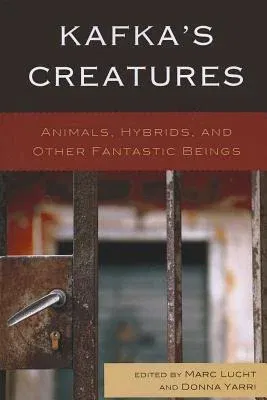There are few literary authors in whose work animals and other creatures
play as prominent a role as they do in Franz Kafka's. Exploring multiple
dimensions of Kafka's incorporation of nonhuman creatures into his
writing, this volume is the first collection in English of essays
devoted to illuminating this important and ubiquitous dimension of his
work. The chapters here are written by an array of international
scholars from various fields, and represent a diversity of interpretive
approaches. In the course of exploring the roles played by nonhuman
animals and other creatures in Kafka's writing, they help make sense of
the literary and philosophical significance of his preoccupation with
animals, and make clear that careful investigation of those creatures
illuminates his core concerns: the nature of power; the inescapability
of history and guilt; the dangers, promise, and strangeness of the
alienation endemic to modern life; the human propensity for cruelty and
oppression; the limits and conditions of humanity and the risks of
dehumanization; the nature of authenticity; family life; Jewishness; and
the nature of language and art. Thus the essays in this volume enrich
our understanding of Kafka's work as a whole. Especially striking is the
extent to which the articles collected here bring into focus the ways in
which Kafka anticipated many of the recent developments in contemporary
thinking about nonhuman animals.


